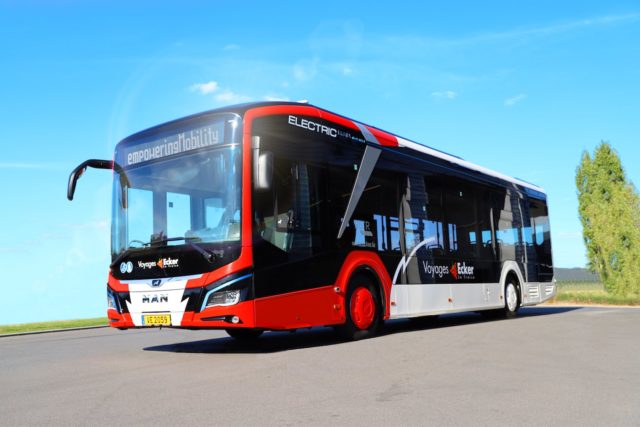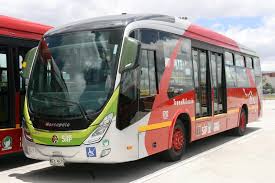
Three electric buses will enter the country during September to carry out tests in Tres Ríos, Desamparados, and Alajuela. These tests will give indications of how to electrify the bus fleet in 2021. This was confirmed by the Energy Directorate from the Ministry of Environment and Energy (MINAE), after inquiries from the media. These buses are a donation from the government of Germany.
“Once in the country, the respective nationalization process must be carried out, and then the technical tests will be undertaken, before starting the trial period of the buses on public transport routes,” said the Director of Energy, Randall Zúñiga. The buses will be tested on three routes: San José – Desamparados – San Rafael, San José – Tres Ríos, and San José – Alajuela (by INVU).
“The study of the data collected will allow us to understand in detail all aspects of the behavior of the technology (electric buses) under real operating conditions in the country,” said Zúñiga. The government must include a quota for electric buses in the new bus concessions in 2021, as provided by the Law of Incentives and Promotion of Electric Transportation approved in 2018. For that, it must be known how they function in the country.
“The National Electric Transportation Plan will establish the program for the vehicle fleet of concessioned buses in the country to gradually replace fossil fuel vehicles,” says Article 28 of this law. In the long term, the objective of the National Decarbonization Plan is for 30% of the public transport fleet to be electric by 2035 (in 16 years). By 2050, the goal would be to have an 85% electric public transport fleet.
Currently, the transport sector is the main generator of greenhouse gas emissions, causing the climate crisis. This sector generates practically 50% of the country’s emissions, according to the latest National Inventory of Greenhouse Gases.
More cost-effective

Electric buses have a higher initial cost, but are cheaper to operate, according to the researcher from the Faculty of Electrical Engineering of the University of Costa Rica (UCR), Jairo Quirós. Quirós led one of the first studies with these buses in Costa Rica, at the UCR campus. It revealed that operating the electric bus was up to 80% cheaper than operating a conventional bus, the researcher said.
“An internal combustion engine is inefficient, but an electric motor is quite efficient. It travels that 15-20 km of each route with much less energy consumption,” said Quirós. In addition to efficiency, another factor that reduced cost is that electricity is cheaper than diesel. “Every day that passes the electric transportation system is saving money,” said the doctor of electrical engineering.
The initial investment cost, however, is still high: an electric bus can cost around $ 330,000, more than double that of a diesel bus. Quiró explained that under the financial analysis they carried out, this investment would take between 2 and 6 years to pay off. “If we think that the concessions are being made every 7 years, we are below that period granted by the concession,” said the engineer.
The Regulatory Authority for Public Services (ARESEP) proposed in March an electric recharge rate for buses, under which they could travel approximately 100 km with ¢ 7,000.
Pilot plan
The first three buses will begin tests in the second half of the year. Another 12 buses – brought to the country by the companies of the National Bus Chamber – were going to be part of the studies, but now they are under uncertainty. This is because companies have suffered a significant economic impact during the COVID-19 Pandemic, due to health restrictions and low mobility of people. Only in April, the Pandemic generated losses of up to ¢ 14,000 million in the bus sector, according to data from ARESEP.
Even so, the government assured that it will continue with the first three buses donated by the German government. According to Zúñiga, authorities will seek to measure how buses compare to combustion buses.
“This monitoring system will make it possible to compare diesel buses with electric buses by collecting data such as, for example, quantifying the total distance traveled, per bus, per route, per lap, per day and fuel/electricity consumption for both vehicle technologies,” said the Energy Director.

